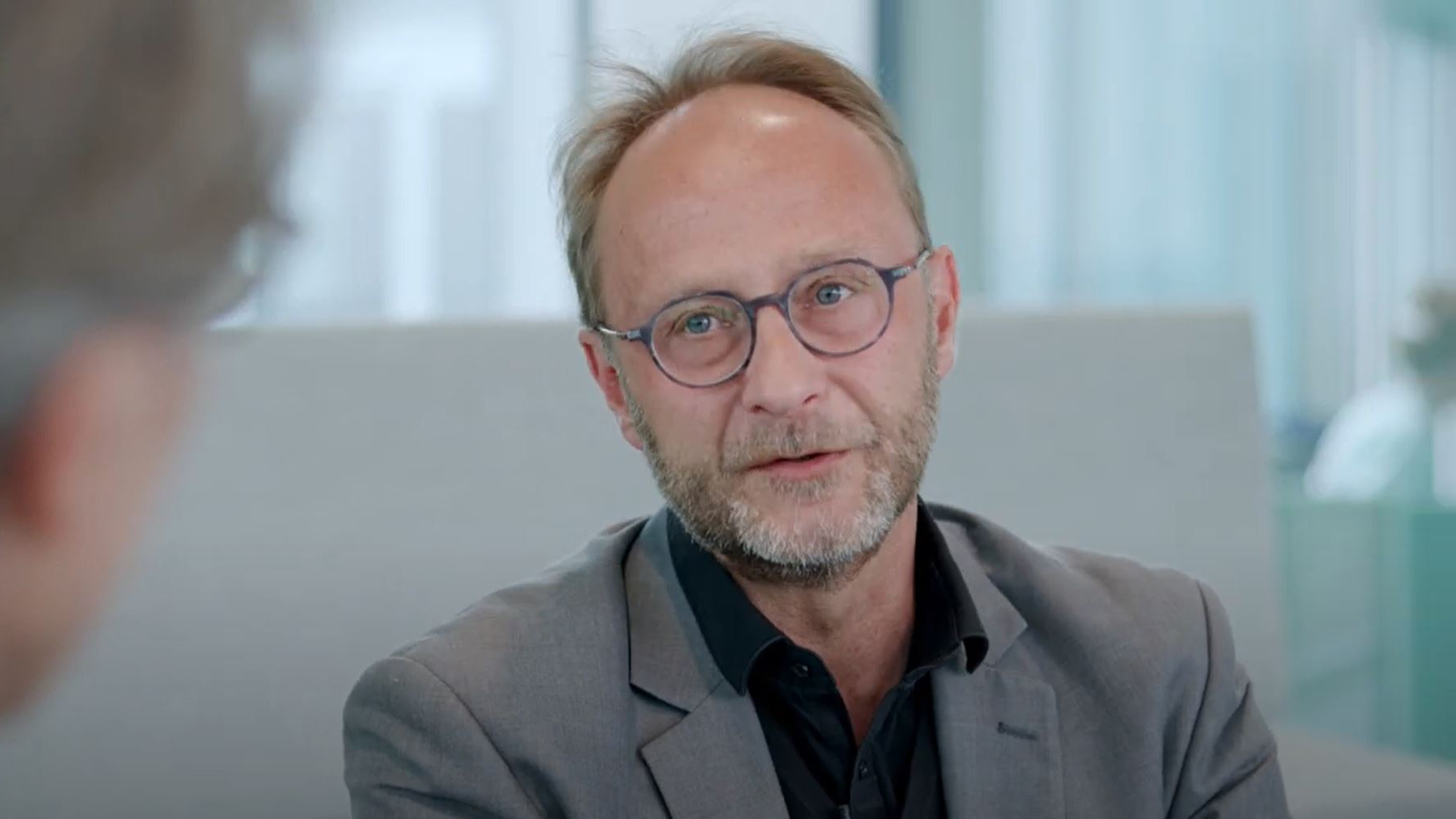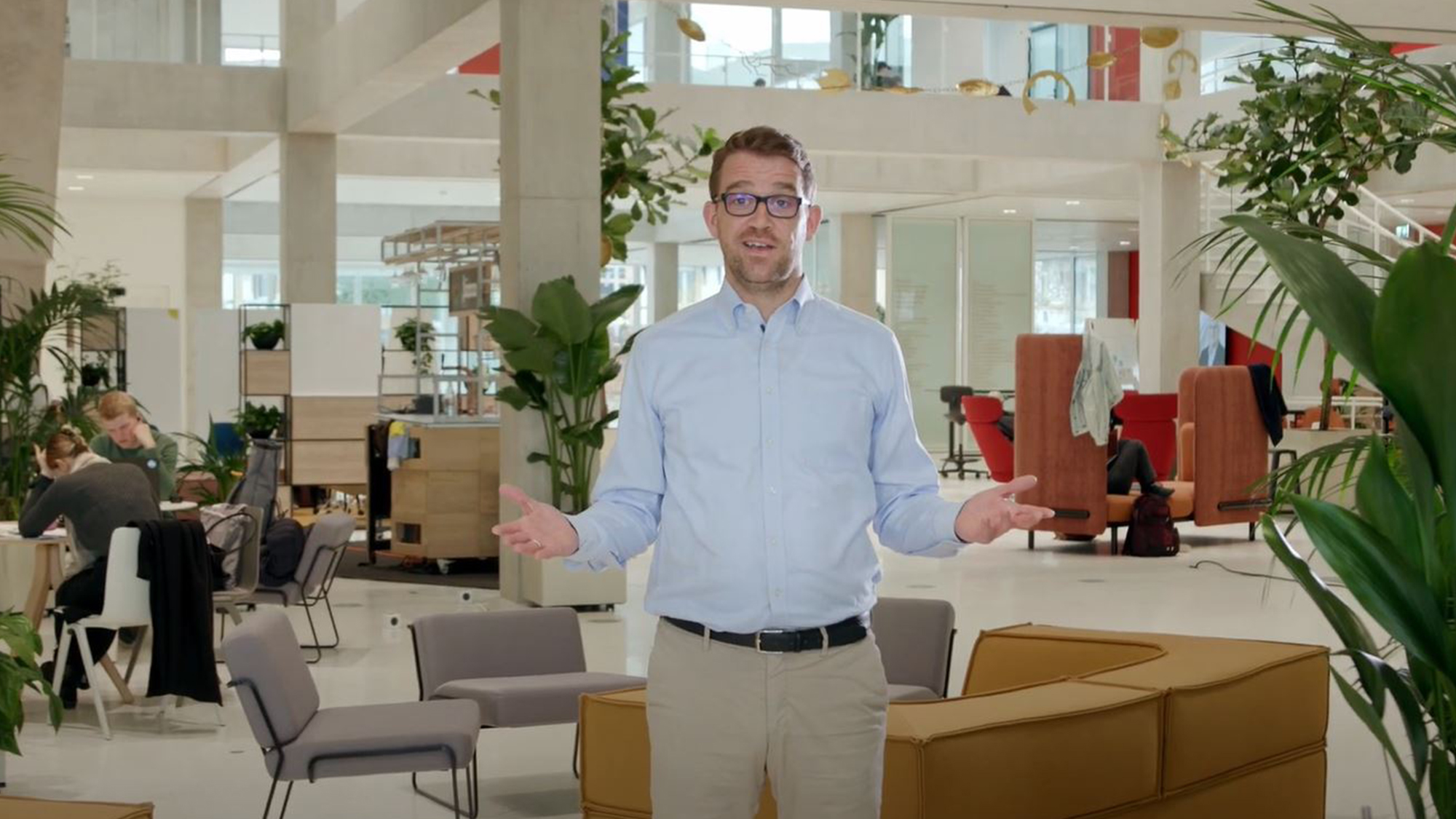Research - 16.05.2022 - 00:00
Three research projects receive the "HSG Impact Award 2022"
This year, the University of St.Gallen (HSG) is conferring the HSG Impact Awards for the fifth time. HSG researchers will receive awards for the valuable contribution they make to society through their projects.

16 May 2022. The HSG Impact Awards distinguish research projects at the University of St.Gallen which have an especially clearly recognisable impact on society. The jury, consisting of practitioners and university members, assessed applications from various HSG research disciplines. This year, the awards will be presented as part of the Dies academicus this coming Saturday, 21 May 2022.
Three awards are being conferred: to the research project “Ethik der Covid-19 Pandemie” (Ethics of the Covid-19 Pandemic) by Prof. Dr. Thomas Beschorner and Prof. Dr. Martin Kolmar, to the project “Life Design” by Prof. Dr. Sebastian Kernbach, Prof. Dr. Martin Eppler and Prof. Dr. Sabrina Bresciani, and to “Die Zukunft der Arbeit verantwortungsvoll gestalten: Implikationen aus dem Pioneering-Projekt Resilienz und Hochleistung @Hilti” (Responsibly Designing the Future of Work: Implications from the Pioneering Project Resilience and High Performance @Hilti) by Prof. Dr. Heike Bruch, Prof. Dr. Nils Fürstenberg and Frederik Hesse.
Ethics of the Covid-19 Pandemic
Over the past two years, the Covid-19 pandemic has occupied society like no other topic. Right from the start, but increasingly so as time went on, it became clear that the associated questions and problems are not only of a virological, economic and statistical nature, but in essence also have social and ethical dimensions.
In a series of articles in leading public media in the German-speaking world, Prof. Dr. Thomas Beschorner and Prof. Dr. Martin Kolmar joined in this discussion to contribute to the debate with well-founded factual analyses and normative reflections. Their article “Eine Diskriminierung von Ungeimpften ist ethisch gerechtfertigt” (Discrimination against the unvaccinated is ethically justified) on ZEIT Online has been read well over 500,000 times, and repeatedly commented on and shared. This and other texts by Beschorner and Kolmar on the topic have given important impulses to a social debate and shaped the social and political discussion in the past pandemic years.

HSG Impact Award 2022: Ethics of the Covid-19 pandemic
The Covid 19 pandemic has preoccupied society like no other topic over the past two years. It became clear right from the start that the questions and problems associated with the pandemic are not only of a virological, economic, and statistical nature, but also have social and ethical dimensions at their core. In a series of articles in leading public media in the German-speaking world, Prof. Dr. Thomas Beschorner and Prof. Dr. Martin Kolmar intervened in this discussion to contribute to the debate with well-founded factual analyses and normative reflections.
The St.Gallen Life Design approach
Life Design is a scientific design approach that originated at Stanford University under the title “Design Your Life”. It was here that the Design Thinking innovation method was applied to the design of one's own future and career for the first time. Prof. Dr. Sebastian Kernbach first encountered this approach in 2018 as part of an SNSF fellowship at Stanford and has been steadily developing it ever since. Together with Prof. Dr. Martin Eppler and Prof. Dr. Sabrina Bresciani, he has combined it with insights from positive psychology, behavioural economics and knowledge visualisation. This has resulted in the new “Life Loops” approach, which has been published in various articles and in the book “Life Design”.
Since then, this new Life Design approach has been used at the “Life Design Lab” at the University of St.Gallen, adapted for various target groups and organisations and researched in the context of numerous studies. The award-winning research project investigated the impact of the St.Gallen Life Design approach on individuals, organisations and society, especially with regard to the development of psychological capital, which consists of self-efficacy, hope, optimism and resilience.

HSG Impact Award 2022: Life Design
Life Design is a scientific design approach that originated at Stanford University under the title "Design Your Life". There, the innovation method Design Thinking was applied to the design of one's own future and career for the first time. Prof. Dr. Sebastian Kernbach got to know this approach in 2018 as part of an SNSF fellowship at Stanford and has been steadily developing it ever since. Together with Prof. Dr. Martin Eppler and Prof. Dr. Sabrina Bresciani, he has combined it with insights from positive psychology, behavioral economics, and knowledge visualization. This has resulted in the new approach of "Life Loops", which has been published in various articles and in the book "Life Design".
The future of work
The world has been in the grip of the Corona pandemic since 2020. In addition to the fundamental economic and social challenges, an abrupt change in collaboration in companies can also be observed: home office, virtual collaboration and the increased use of digital means of communication gained enormous importance due to the crisis. For many employees, the increased opportunity to work from home goes hand in hand with more freedom and flexibility. On the other hand, empirical findings show that a significant proportion of employees are being left behind and threatening to burn out as a result of increased work in the home office. Companies must find ways to support their employees in this ongoing exceptional situation, not only to maintain their own competitiveness, but also out of social responsibility, in order to ensure their long-term health and performance.
Given these comprehensive challenges, the research project “Resilienz und Hochleistung bei Hilti in Zeiten der Pandemie” (Resilience and High Performance at Hilti during the Pandemic) by Prof. Dr. Heike Bruch, Prof. Dr. Nils Fürstenberg and Frederik Hesse addressed this topic, with the aim of help Hilti to successfully overcome this global crisis. The empirical findings obtained are not only actively being used by Hilti, but are also being actively shared in the "Pioneering Consortium", a consortium consisting of 18 practice partners from German-speaking countries, with a focus on Switzerland. In addition, the findings are being discussed in the public domain on the basis of various publications.

HSG Impact Award 2022: The Future of Work
The Corona pandemic has kept the world on tenterhooks since 2020. In addition to the fundamental economic and In addition to the fundamental economic and social challenges, there has also been an abrupt change in the way companies work together: Home office, virtual collaboration, and the increased use of digital communication tools gained enormous importance due to the crisis. The research project "Resilience and High Performance at Hilti in Times of Pandemic" by Prof. Dr. Heike Bruch, Prof. Dr. Nils Fürstenberg, and Frederik Hesse was dedicated to this topic in view of these comprehensive challenges, with the aim of supporting Hilti in successfully overcoming this global crisis.
You can find the research projects that received an HSG Impact Award from 2018-2021 in the context section or on our YouTube channel.
More articles from the same category
Discover our special topics











